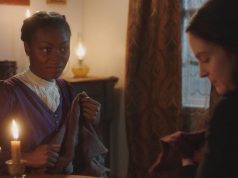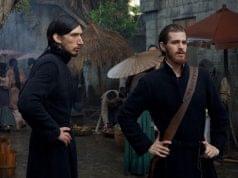“The Best Two Years” is like “God’s Army” without the melodrama. Its characters are Mormon missionaries who are ordinary and therefore relatable. Their stories are commonplace, especially to anyone who has been a missionary, but they are told with insight and compassion.
The film is set in a typically squalid missionary apartment in the Dutch town of Haarlem (which is far nicer than the area of Manhattan that was named after it). Two sets of missionaries live there. One is level-headed district leader Elder Johnson (David Nibley) and his companion Elder Van Pelt (Cameron Hopkin), a preening, fatuous title-seeker. The other companionship is Elder Rogers (KC Clyde) — once productive but lately unmotivated to work — and his brand-new companion Elder Calhoun (Kirby Heyborne), who is straight from the backwoods of Oklahoma by way of the Missionary Training Center.
The mission president (Michael Flynn) has sent Rogers a greenie in the hopes that training someone new will be the kick-start he needs. Rogers resists such maneuvers, but Calhoun is too enthusiastic to be restrained, and Rogers soon finds that his four-hour work weeks have turned into more standard 60-hour weeks. They meet an American named Kyle (Scott Christopher) whose interest in hearing the gospel is weak but who, like Rogers, can scarcely defend himself against the whirlwind of naive fervor that is Elder Calhoun.
Van Pelt and Johnson, meanwhile, have their own differences, which they mostly manage to keep out of the way of their work. Van Pelt gives Johnson grammar tips (most of which, I might add, are incorrect) and won’t let him use his favorite slang term, “flip.” Johnson puts up with Van Pelt’s priggishness because he has received a tape from his girlfriend back home, which he plans to listen to as soon as they can find a working tape player.
Written and directed by Scott S. Anderson, and based on a play he wrote some 20 years ago based on his own experiences in Holland, the film accurately and poignantly reflects the most important elements of the missionary experience, even if it overplays some of the details. (Van Pelt and Johnson’s manic reaction to the arrival of mail crosses over into farce, for example, as does their destruction of the apartment during a “flip”-induced brawl.)
At its heart is the idea that no one is perfect, that “good” missionaries have bad moments and that “bad” missionaries have good ones. KC Clyde, who as Rogers is the film’s emotional center, exemplifies this perfectly with a very real, believable performance. Rogers isn’t unrighteous; he’s simply embittered and burnt-out. He doesn’t know why he’s on a mission anymore, and the moment he rediscovers it is genuinely sweet.
David Nibley is also very natural as Johnson, the other down-to-earth character. He plays him with integrity and with more comical physicality than I would have expected. (There are a number of highly amusing sight gags in the film, and Nibley’s involved with several of them.)
It’s Cameron Hopkin and Kirby Heyborne whose performances need to be reined in a little. Hopkin often is too strong and over-the-top as Van Pelt, trying too hard to play a character who tries too hard. And Heyborne’s Calhoun character just puzzles me. He somehow managed to learn NOTHING in the MTC — no Dutch, no missionary skills, nothing — and even though he’s supposedly a hardcore nerd chess champion (complete with unfashionable eyeglasses), he possesses little common sense or deductive reasoning skills.
Ah, but I like him anyway. I like all four characters, in fact, even in their less well-scripted moments, because of the chemistry among them. They really capture the camaraderie of missionaries, the rivalries and disagreements that are underscored by love.
I admire Anderson for setting most of the film in a single apartment without letting it get claustrophobic, shooting from enough different angles and keeping the dialogue interesting enough to make the setting feel expansive.
He also deserves credit for elegantly mixing comedy with drama, often within the same scene. Rogers and Calhoun’s first lesson with Kyle is a prime example — uproariously funny one moment, touching the next, then back to funny again.
There is a conversion in the film, and it’s oversimplified and easy, but I think that’s beside the point. The film isn’t about how to convert someone. It’s about converting yourself, about figuring out what you’re doing with your life and going with it. It’s a thoughtful and entertaining film.
B (1 hr., 53 min.; )




